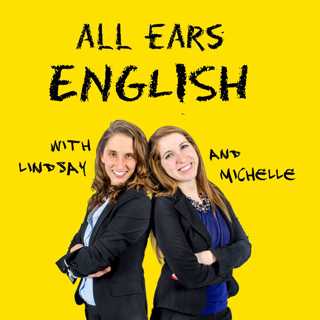
AEE 302: Why Just Speaking May NOT Be the Best Route to Fluency in English
Jaksokuvaus
Come back and let us know your thoughts on this: http://www.allearsenglish.com/302 Get our FREE IELTS Cheat Sheet: http://www.allearsenglish.com/evaluation Today we have a special guest on the show! Our guest will challenge your assumption that SPEAKING is the most important part of learning English. Julian sees learning languages as a simple, two-step process: Step 1: Learn the language that we need for our specific situation Step 1: Apply the language and use it Julian’s 3 Tips- How to Keep it Practical: Try to do many different kinds of things in the language: English is a process. Spend time with it. You can’t HAVE it. You can’t GET it. You need to constantly maintain it. Julian says that there is no difference between “experiencing” the language and “learning” the language, as far as your brain is concerned. By experiencing the language in many different ways, we can acquire chunks of English which will help us to sound more native-like. You should try to encounter the language through reading, speaking, listening, writing, etc. Get a more well-rounded experience of the language instead of just focusing on speaking. Try to get a balance between intensive activity and relaxed exposure: Some of your work should be deliberate, focused, practical, intensive study. At the same time, some of your work should be a more relaxed encounter with the language. You need to take it in in a way that is enjoyable and easy. You could try listening to music in the language or watching TV. The key is getting a balance between the two forms of learning. Focus on things which are useful to YOU: Exclude things that aren’t useful to you. Don’t bother to learn things that you won’t need to use. According to Julian, we don’t become fluent in English. We become fluent in specific topics such as cooking, law, politics, art, etc. Choose your focus and pursue English in that area. Drop the idea of becoming “fluent” in English in general. Julian’s Bio: Our guest today is an English teacher from England, living in Japan. He is the father of three bilingual children, is halfway through a PhD program in Psycholinguistics and used his insight about language learning to go from speaking poor Japanese in 2008 to being a translator in 2010. Our guest today is Julian from DoingEnglish.com What do you think? Have you focused down on one specific area of English learning? What area are you focusing on? Let us know in the comments! Learn more about your ad choices. Visit podcastchoices.com/adchoices